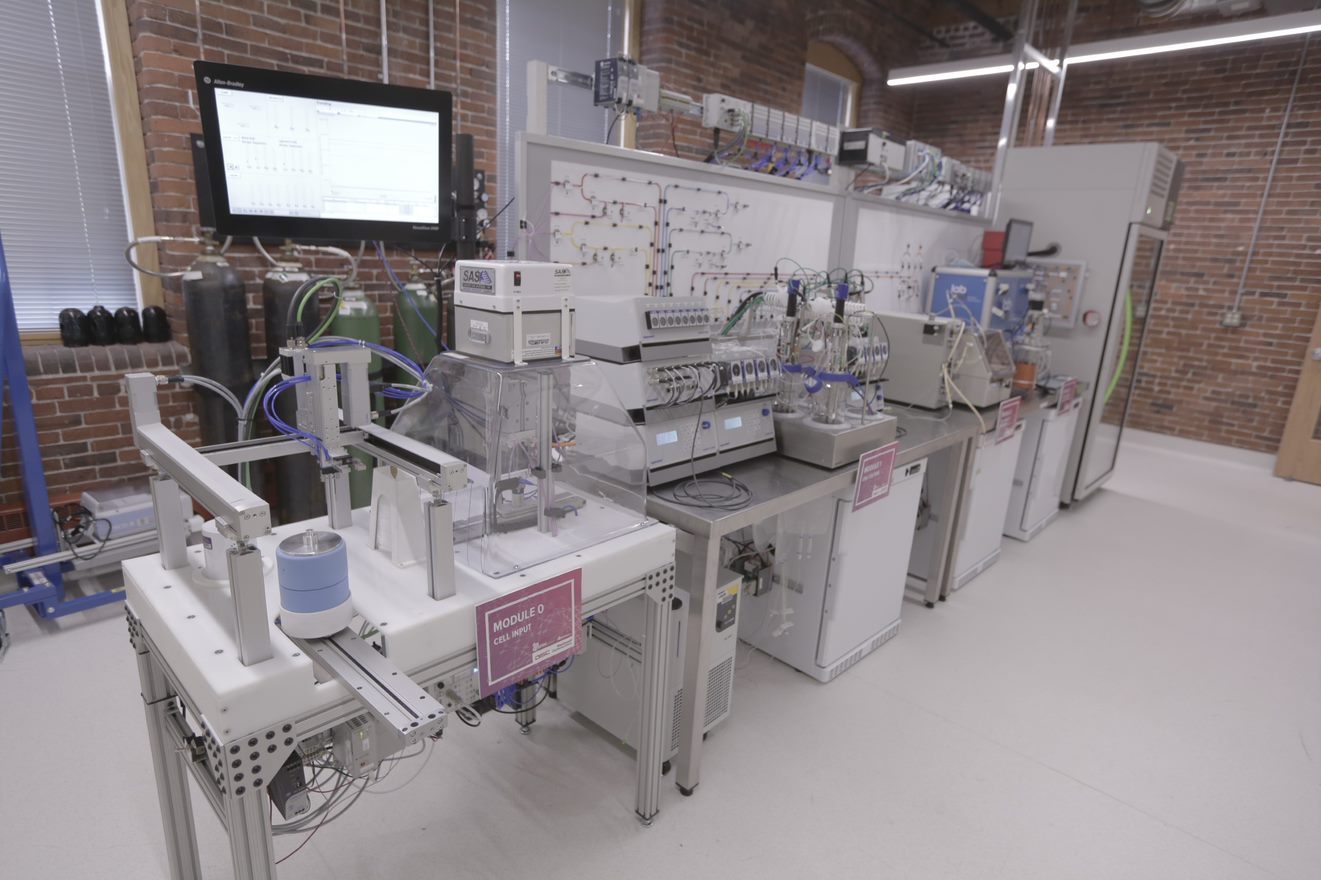Significant breakthroughs in cell biology, biofabrication, and materials science in the last decade have laid the foundation for scalable manufacturing and commercialization of bioengineered and enabling technologies. BioFabUSA targets the raw material, equipment, measurement, automation, logistics and analytics challenges that hinder scalable, consistent, and cost-effective manufacturing. The development of bioengineered products on an industrial scale enables DoD to save lives on the battlefield, support force readiness, and restore form, function, and quality of life for service members, their families, and the broader public.
 BioFabUSA's Tissue Foundry
BioFabUSA's Tissue Foundry